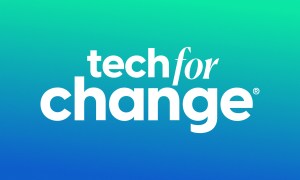

AI pioneer Yann LeCun has described talk of artificial intelligence (AI) posing an existential threat to humanity as “preposterously ridiculous.”
Speaking to the BBC this week at an AI-focused event held in Paris by Meta, where he now works as the company’s chief AI scientist, Professor LeCun said: “Will AI take over the world? No, this is a projection of human nature on machines.”
LeCun’s comments are in stark contrast to those made by Geoffrey Hinton and Yoshua Bengio, with whom he received the Turing Award in 2018 for breakthroughs in AI. The three experts are now often referred to as “the godfathers of AI.”
Hinton recently quit his role at Google so he would be able to share his thoughts on AI development more freely. When asked in a recent CBS interview about the likelihood of AI “wiping out humanity,” Hinton responded: “That’s not inconceivable.”
Bengio, meanwhile, said recently that while today’s AI systems are nowhere near to posing an existential risk to humanity, it’s possible that things could get “catastrophic” with more advanced versions of the technology, saying that there’s “too much uncertainty” about where we might be with AI in a few years from now.
LeCun, however, appears more relaxed about the way things are going, saying that fears of AI taking over are overblown.
While the professor admitted that AI would undoubtedly surpass human intelligence, it would take years if not decades to reach that point. Even then, LeCun said, the idea that a superintelligent AI would escape our control is “just preposterously ridiculous,” adding that it’s simply “not the way anything works in the world.”
LeCun told the BBC that even a highly advanced AI system is “going to run on a data center somewhere with an off switch. And if you realize it’s not safe you just don’t build it.”
Viewing the technology in a more positive light, he said AI would lead to “a new renaissance for humanity” in a similar way to how the internet or the printing press transformed society.
While AI has been around for decades, recent and rapid advances in the technology have put it front and center, with powerful tools like OpenAI’s ChatGPT and Google’s Bard chatbots gaining much publicity for the impressive way in which they can handle data and converse in a human-like way.


